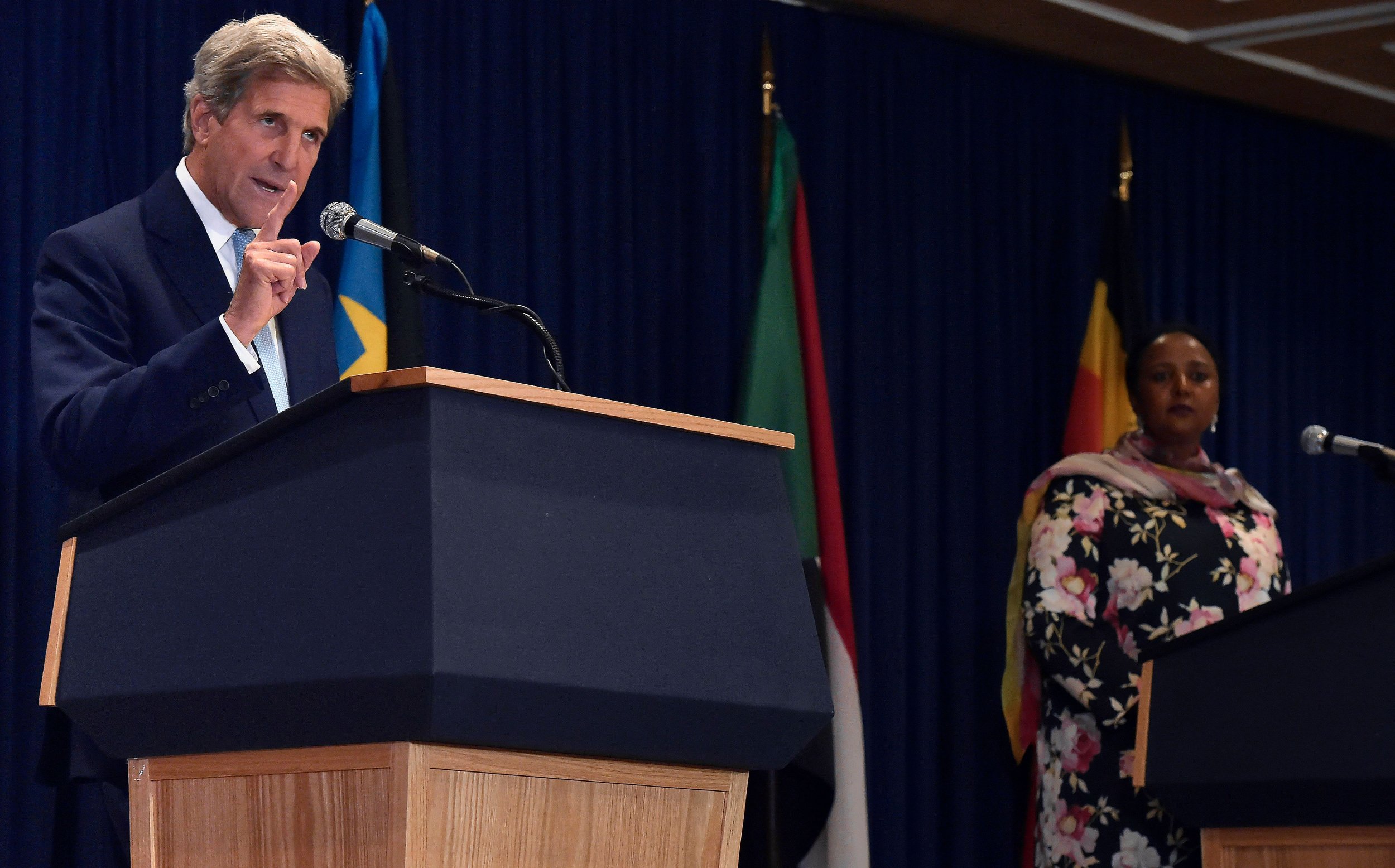
South Sudan's leaders must "seize the bull by the horns" and fully implement a peace deal or potentially face international sanctions and a U.S. arms embargo, U.S. Secretary of State John Kerry has warned.
Kerry was in the Kenyan capital Nairobi on Monday, where he met with Kenyan President Uhuru Kenyatta and foreign ministers from Somalia, South Sudan and Sudan to discuss the crisis in the world's youngest country, which only achieved independence in 2011.
South Sudan has been mired in on-off conflict since December 2013 and a fresh outbreak of violence in the capital Juba in July killed hundreds of people and displaced tens of thousands. In the wake of the violence, the United Nations authorized the deployment of 4,000 additional troops to act as a protection force in Juba.
"It's really up to the people, the leadership of South Sudan to lead and do the things that they've promised to do. If they don't then obviously it may be that the U.N. arms embargo and sanctions are going to be the tools of last resort," said Kerry in an interview with South Sudan's Eye Radio broadcast on Tuesday.
Kerry said that the full implementation of the peace agreement was a precondition to the U.S. continuing to support South Sudan in terms of economic aid. He earlier announced that the U.S. government would provide an additional $138 million to support the thousands of civilians displaced by the recent fighting.
"If they [the leaders of South Sudan] choose not to do that [implement the peace agreement], then we, who have been the largest donor in the world to the government of South Sudan, will have to rethink what we are doing, because we cannot work with a government that is not willing to work with itself and with its own people," said Kerry.
The conflict has pitted rival forces backing President Salva Kiir and the former First Vice-President Riek Machar against each other and has often played out along ethnic lines—Kiir is a Dinka, the country's largest ethnicity, while Machar is a Nuer, the second largest. The rival forces signed a peace agreement in August 2015 and Machar returned to Juba in April to restart his duties as Kiir's deputy, but July's fighting saw Machar flee the capital and eventually the country.
The deployment of additional U.N. troops was additionally met with disdain by Kiir's government, though it has since said it is rethinking its position. The U.N. already deploys almost 13,500 uniformed personnel in South Sudan as part of a peacekeeping mission, but Kerry emphasized that the mandate of the new force would be significantly different. It would protect civilians and facilities caught up in the fighting, with the U.S. secretary of state clarifying that it was not a threat to the South Sudanese government. "It is not an intervention force that is somehow challenging the sovereignty of the country," Kerry told Eye Radio.
Tens of thousands of people have been killed since December 2013 in South Sudan and more than two million people have been displaced.
Uncommon Knowledge
Newsweek is committed to challenging conventional wisdom and finding connections in the search for common ground.
Newsweek is committed to challenging conventional wisdom and finding connections in the search for common ground.
About the writer
Conor is a staff writer for Newsweek covering Africa, with a focus on Nigeria, security and conflict.
To read how Newsweek uses AI as a newsroom tool, Click here.








